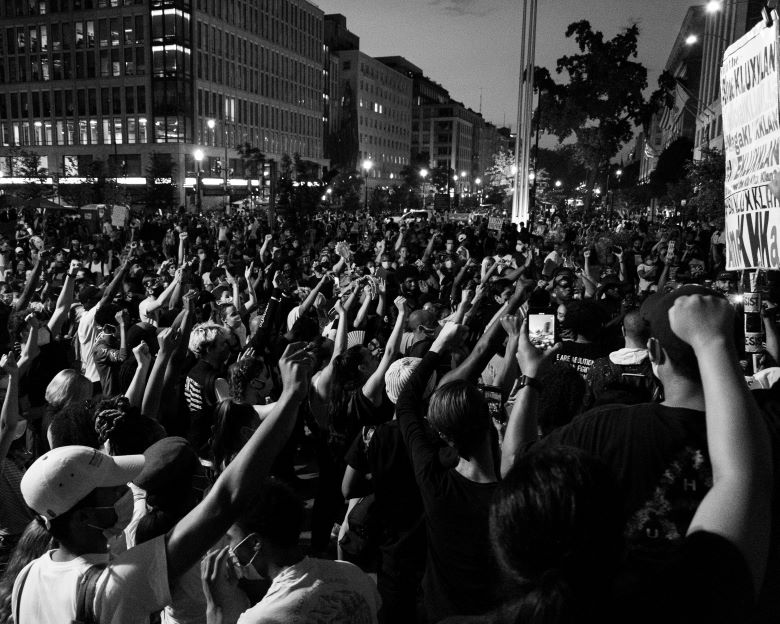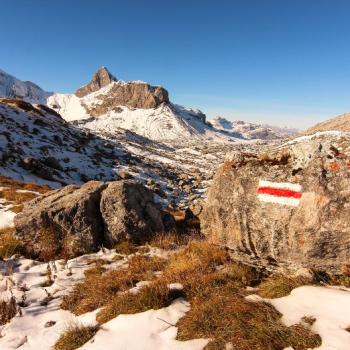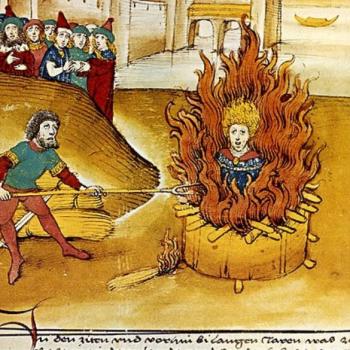The problem of evil is a philosophical conundrum that suggests it is impossible for a being that is all-powerful, all-knowing, and all-good to create a world with evil. After all, this being would know evil exists, be capable of ending it, and would be motivated to do so.
Non-theists argue that the existence of evil contradicts the classical understanding of the Judeo-Christian God. Some even go on to say that the problem of evil forces believers to give up one of God’s divine attributes or the idea of God itself. However, is this true?
Ivan’s Dilemma
I have a crisp memory of the first time I truly began to think about the kinds of questions the existence of evil presents us with. I was in my room, jamming out to the Descendants as I read Brothers Karamazov. In the book, a God-believing Christian named Ivan peers into the world and sees the abundance of evil. His search leaves him troubled and questioning his desire to follow a creator who would make such a world.
“I would rather remain with my unavenged suffering and unsatisfied indignation, even if I were wrong. Besides, too high a price is asked for harmony…. And so I hasten to give back my entrance ticket, and if I am an honest man I am bound to give it back as soon as possible…. It’s not God that I don’t accept, Alyosha, only I most respectfully return him the ticket.” “That’s rebellion,” murmured Alyosha, looking down.” – Ivan and Alyosha, Book V – Pro and Contra, Chapter 4 – Rebellion.
My Struggle With The Problem of Evil
For a time, Ivan’s dilemma became my own. How could I, in good conscience, take advantage of God’s grace while my fellow human suffers next to me? In the words of Stephen Fry.
“Why should I respect a capricious, mean-minded, stupid God who creates a world which is so full of injustice and pain?”
I also began to question my understanding of God. After all, how could it be possible for an omnibenevolent, omnipotent, and omniscient Being to tolerate the torment of his creatures here on earth?
During that time of doubt and confusion, I often felt alone. You see, I was attending a Christian University where it was not cooth to wonder about such things. Yet, after a bit of research, I discovered that I was, in fact, not alone. My inability to square God’s goodness and power with the existence of evil is a problem Christians have wrestled with for literally thousands of years.
Answering The Problem of Evil
The evil investigated by The Problem of Evil can be divided into two main categories: Natural Evil and Moral Evil. Natural evils are events that occur in nature, such as natural disasters, diseases, and general suffering not caused by human action. Moral evils are actions performed by humans that cause some form of suffering to others. Examples of moral evils include murder, war, and rape.
Over the centuries, theologians and philosophers have developed many defenses that attempt to answer the Problem of Evil. These explanations are known as Theodicies. (yes, this is such a big deal that the answers have a philosophical designation.)
Throughout the rest of my time in university, I explored different Theodicies. Sometimes I found the answers appealing and other times; I did not. However, I never gave up the search, and eventually, God gave me an answer I could live with. Here are two classic arguments that I personally find helpful.
The Free Will Defense
One of the most common approaches to explaining the problem of moral evil is the “free will defense.” According to this approach, evil exists because God endowed humanity with the ability to choose between moral and immoral actions. Biblically this can be seen in the way God placed the “tree of life” and the “tree of the knowledge of good and evil” in the garden. (Genesis 2)
The Necessity of Free Will
According to this point of view, God gave us the ability to choose so we could possess certain qualities that we otherwise could not.
Take the concept of love as an example. The ability to Love is a core pillar of what makes us human. After all, we are the image of a God who is himself the definition of love. If we lost the ability to choose, we would immediately lose the ability to give genuine unconditional love. A kind of love that only exists when it’s selected.
Similarly, without choice, we wouldn’t have the ability to reason. Thinking is only possible for creatures who can see multiple possibilities. Trees don’t reason their way through life; they follow a programmed path that, for better or worse, will direct their activities in a specific determined direction.
In order to create creatures who can be held responsible for their actions and possess qualities like love, generosity, or reason, the ability to choose had to be baked into the equation. Consequently, God gave humanity free will not because he wanted chaos but because we could not be human without it.
Although this argument does much to explain why God allows moral Evil, It does little to account for natural evil, as it seems unlikely that all natural disasters result from humanity’s free will.
The Problem of Natural Evil
Throughout my time in university, the existence of natural evil presented, by far, the most perplexing questions for me to wrap my brain around. Why do we have to die from things like cancer, lightning strikes, or illness? Why didn’t God design us more robustly or at least build a world with less potent natural evils?
Being brought into a world where you reap what you sow is one thing. That kind of environment has an unmistakable internal justice that anyone can get behind. However, a world where bad things happen to good people for no apparent reason is quite different. It feels wrong, unjust, unprompted, and unfair.
Or…. As Stephen Fry puts it.
“Yes, the world is very splendid but it also has in it insects whose whole lifecycle is to burrow into the eyes of children and make them blind. They eat outwards from the eyes. Why? Why did you do that to us? You could easily have made a creation in which that didn’t exist. It is simply not acceptable.”
Our Hand in Natural Evil
Before I get into my preferred explanation of natural evil, I believe it should be pointed out that much of natural evil’s severity is humanity’s fault. According to Genesis 1:28, we have been given the job of ruling the earth. A responsibility we are not particularly good at.
Global warming is by far the primary example of this. No matter your views on the topic, it goes without saying that we have had a hand in the future severity of natural disasters. Another excellent example of a “natural” evil created by poor stewardship is the existence of starvation.
According to the UN,
“Each day, 25,000 people, including more than 10,000 children, die from hunger and related causes. Some 854 million people worldwide are estimated to be undernourished.”
Many, if not most, of these deaths are a product of things like war, greed, laziness, corruption, and a disinterest in the suffering of others. In other words, they are entirely avoidable.
Natural evils like these are intimately tied to people’s sins. Consequently, they are very similar to moral evils. However, there are some natural evils humanity has little to no control over. So why does God allow them in reality?
The Soul-Making Model
A very well-known response to the existence of natural evil is called the Soul-Making Model. It was popularized by a philosopher named John Hick, who built upon arguments created by people like Origen and Irenaeus. Hicks believed that people are unfinished and grow through hardship.
“In his work, he suggests that adversity and setbacks play a crucial role in shaping one’s soul or character. The theory proposes that people are not created as perfect beings and must undergo life’s struggles to develop their inner selves. Consequently, evil is necessary because we cannot struggle and grow without it.”– What is a Theodicy? Answering The Problem of Evil
The Level of Evil
The Soul-Making Model also presents a reason for the level of natural evil in the world.
Some evils help us grow by being mountains we must climb or giants to slay. However, other natural evils, like cancer, can not always be defeated. They are, by nature, more powerful than us and so must be suffered rather than overcome.
Hardships beyond our control exist to direct our hearts and minds toward God. If we lived in a world where our own strength could overcome every natural evil, we would undoubtedly look to ourselves rather than our Creator. Irenaeus illustrated this principle with the story of Jonah.
“For as He patiently suffered Jonah to be swallowed by the whale, not that he should be swallowed up and perish altogether, but that, having been cast out again, he might be the more subject to God, and might glorify Him the more who had conferred upon him such an unhoped-for deliverance, and might bring the Ninevites to a lasting repentance, so that they should be converted to the Lord, who would deliver them from death.” – Irenaeus, Against Heresies (Book III, Chapter 20)
The Biblical President
I like the soul-making model because it complements the Bible’s depiction of natural evils’ introduction into the world.
According to the scripture, God did not initially create the world we live in today. In the beginning, people lived forever in a world without things like thorns and weeds. Death and the evils did exist, but, like pandora’s box, the bad stuff was safely quarantined inside a fruit.
After Adam and Eve brought death and sin into the world, God cursed humanity with natural hardships. Through divine command, humanity was sentenced to struggle for survival. Yet, despite these curses, people were still quite robust. According to the text, the generations after the fall lived for centuries. However, as their depravity increased, God brought more curses upon them. In Genesis 6:3, God declared.
“My Spirit will not contend with humans forever, for they are mortal; their days will be a hundred and twenty years.”
According to the text, God did not bring natural evil into the world without reason, purpose, or restraint. Biblically speaking, God did not bring hardship into the world because he wanted to; he did it because he needed to.
We Are Not Alone
If God were indeed the meanspirited kind of Creator Ivan and Fry imagine him to be, I too would have returned my ticket to heaven. As sacrilegious as it might sound, I do not want to follow a God who allows nonsensical evil to exist in a world full of creatures who can suffer. However, after finishing my study I determent that God is not that kind of being. On the contrary, He has good reasons for permitting the natural and moral evils plaguing the earth.
Moreover, he has not abandoned us to suffer alone. Through Christ, he physically joined us in the dirt and grime. Although he is no longer with us in body, if we are willing to reach out, he helps us with our weaknesses. Using the same power that gave humanity choice, he sustains us as we battle the very horrors we bring into the world.
One of the best examples of this can be seen in the musical testimony of Annie Johnson Flint, a hymn writer who had debilitating arthritis. As remarkable as her story is, her attitude toward God’s role in her pain is even more inspiring. I would like to leave you with her thoughts.
He Giveth More Grace
“He giveth more grace when the burdens grow greater,
He sendeth more strength when the labors increase;
To added affliction He addeth His mercy;
To multiplied trials, His multiplied peace.
When we have exhausted our store of endurance,
When our strength has failed ere the day is half done,
When we reach the end of our hoarded resources,
Our Father’s full giving is only begun.”

















